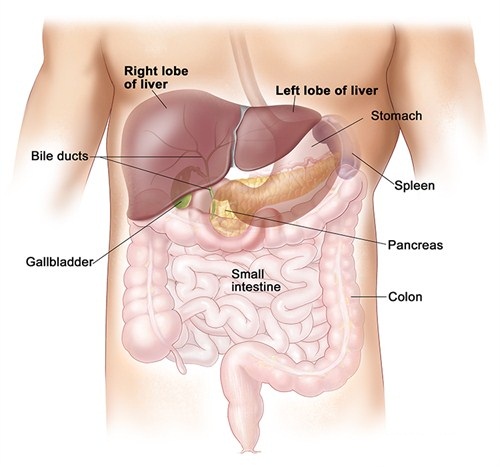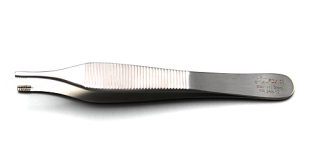Learn all about the organs without which you can live a healthy life. As we know God had created us in a best way but sometimes we have to survive through difficult conditions as we get ill and sometimes we need removal or transplantation of some organs.
The human body is a complex collection of organs and systems that work together to keep us alive and healthy. Some organs, such as the heart, are necessary to sustain life. But the human body is able to do without part or all of some organs, despite their useful functions.
There are a few organs without which we can live a healthy life. Spleen and pancreas are the organs without which a person can stay healthy. The pancreas has two main functions: secretion of insulin, which controls blood sugar levels, and secretion of digestive enzymes and hormones. Although not a perfect solution, these functions can be replaced through insulin injections and oral pancreatic enzymes with meals.
On the other hand liver is the part of body without which life is not possible but we can live with just having a small part of it. The liver is necessary for life due to some of the functions it performs. Liver tissue is very resilient. While the complete loss of a liver is always terminal, according to the Hepatitis B Foundation, an individual can survive with a liver that is up to 75 percent diseased or removed
There are some organs which are present in pairs such as kidneys and lungs. Life is possible with having a single kidney and a single lung. Most people live normal, healthy lives with one kidney. However, it’s important to stay as healthy as possible, and protect the only kidney you have.
What Organs can you live without?
Yes, here are some organs without which you can live a healthy life. They include a kidney, stomach, a lung, gall bladder, appendix, spleen, reproductive organs and sensory organs. Some people may have only a single kidney as they are born with one kidney or it may have been removed due to some illness or may have been donated. Some stomach cancer patients have to live without a stomach. In this case, doctor will connect esophagus to small intestine. Some people may have stones in their gall bladder and it may be removed. Appendix is a kind of safe house for probiotics or good bacteria in gut. But if it is removed because of appendicitis, there seems no problem in whole body’s function. Spleen is a part of immune system and checks blood for the presence of any infections. Your immune system can detect infections in other ways, so you can actually live without a spleen. You can live without the ovaries, testicles and even uterus. It is possible to live a healthy life without your sensory organs such as ears, eyes, and nose.
Can you live without a Pancreas?
Living without a pancreas can be tricky. The pancreas secretes insulin to control blood sugar levels and releases digestive enzymes as well. In the absence of your pancreas, you will have to take medications to replace these functions. You may have to take oral pancreatic enzymes and insulin injections for this. It’s possible to live without a pancreas. But when the entire pancreas is removed, people are left without the cells that make insulin and other hormones that help maintain blood sugar levels.
Can you live without a Spleen?
Spleen is a purple, fist-shaped organ to the left of your stomach. It is actually the part of your immune system. It’s kind of like a checkpoint for the blood, looking out for signs of infection and passing anything it finds on to the T B, and other cells that actually do the work of kicking bacteria and viruses out. It also cleans your blood of old, used up red blood cells (the cells that carry oxygen to different parts of your body).Your immune system has other ways of detecting infection, though, and the liver can take over some of the spleens blood-cleaning work if need be. And while living without a spleen can make you more susceptible to certain bugs, you’d mostly be just fine.
Can you live with one Lung?
The human body typically comes equipped with two lungs that are divided into sections called lobes. At least one lung is necessary to add oxygen to the blood. If all or part of a lung is removed, the remaining lung may expand to take on some of the work of the missing lung. A person with one lung will probably have harder time breathing, and will not be able to exercise as strenuously as a person with two healthy.
Can you live without a Liver?
No, you cannot. It is impossible to live without a liver. The liver performs some critical functions in your body. It produces bile that helps you with digestion. It also filters harmful toxins and throws them out of your body. Without liver, your body cannot deal with toxins and absorb nutrients required for healthy living. It is, however, important to mention that you can still live even if 75% of your liver is removed or diseased. In fact, little as 25 % of liver mass can grow back to its full size through replication of the liver cells.
Can you live with one Kidney?
The human body normally has two kidneys, which act as filters to remove impurities in the blood. Some people are born with one kidney. Others have a kidney surgically removed, either because it is diseased or because they’ve chosen to donate a kidney to someone whose kidneys have failed. It is possible to live a normal life with just one kidney. It is also possible to live with no kidneys. This is done by undergoing regular kidney dialysis which uses a machine to remove waste from the blood.
 Health & Care Information
Health & Care Information 


